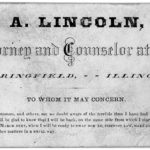In a conversation with a European or American Catholic, if the words Opus Dei, or the Masons are mentioned, reactions can be mixed: outright dislike, grudging admiration, or bewilderment – which of these depends on general knowledge or lack of it. Spanish and French Catholics despise the Masonic movement because of its history of involvement in politics – usually negative or presumptuous – but British Catholics (if they could give a damn) usually know that British Masons are not plotters but business people anxious to improve their own and others’ commercial possibilities, and give alarmingly large donations to Masonic Foundations such as hospitals and schools. The same is repeated in America, where Catholics loathe Masons, and Anglo-Saxon Protestants admire them.
Opus Dei, notwithstanding, is another kettle of fish. European Catholics either despise the Opus or subscribe to it. Admiration does not necessarily mean that Opus-loving Catholics are super-religious. It merely means they take their religion, its dogma, rituals and anomalies very seriously.
Opus Dei or ‘The Work of God’ was founded within the Roman Catholic Church in 1928 by the priest José María Escrivá de Balaguer. There are more than 100,000 members worldwide, but few of are priests. It is lay people who are most attracted by the The Work of God. Lay members are encouraged to continue their profession and retain any social position they may have. In Spain the latter is likely to be eminent.
The organisation was naturally most active during the rule of General Franco (1939 – 75), but it by no means expired with him. It exercises a considerable but controversial influence on public affairs. Like the Masonic movement, the Opus has founded, and manages a number of educational establishments, including private schools and the Universities of Pamplona and Navarra.
The sexes are segregated, an important part of the ethos, for Opus Dei places emphasis on the austere and conservative aspects of Catholic Christianity. Members follow a stunning range of ascetic practices, including the much criticised ‘mortification’ which definitely includes self-flagellation. This is the kind of thing that fascinates (and repels) the Press. Celibacy is encouraged, and boys going to Opus schools must expect severity.
Recruiting is strongly encouraged and well-organised, and membership grows substantially every year, but the movement has been criticised since its inception, not least by members of the Roman Catholic community principally for secrecy and authoritarianism. The late Pope John Paul II might not have been openly a member of the movement, but he supported and encouraged it: He made the founder a saint in 1992, much to the chagrin of many Catholics worldwide.
Like Masonry, Opus Dei in modern times is a power for good, but neither movement can avoid large-scale unpopularity, despite their schools, hospitals and universities.









I see. Could the clever Mr Hermann please inform us all, from the depth of his wisdom, what exactly is inaccurate about the piece? It may be that Hermann is not too sure about the difference between being accurate, and saying something with which he does not agree.
Very best wishes, Hermann,
Dean Swift.